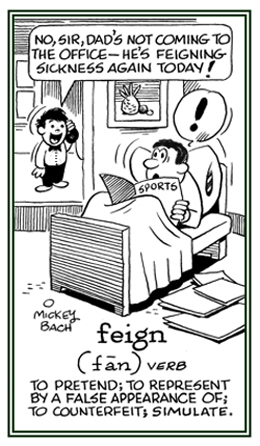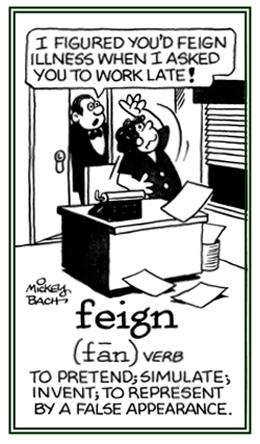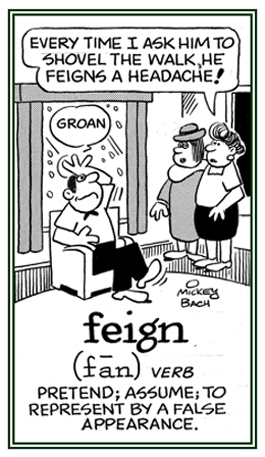figur-; fig-
(Latin: form, shape, figure; to make, to shape, to form)
configurate (verb), configurates; configurated; configurating
1. To take a position; such as, the parts of a complex structure; to agree with a pattern.
2. To give a form or design to something.
2. To give a form or design to something.
1. The arrangement of parts or elements or the way the parts of something are arranged and fit together: The configurations of the Christmas decorations in the display window of the store are very attractive and artistically created.
2. The form, as of a figure, determined by the arrangement of its elements: The seating pattern, or configuration, in an airplane may have a two-seat or a four-seat combination with two aisles leading lengthwise.
3. In psychology, gestalt or a set of things; such as, a person's thoughts and experiences considered as a whole and regarded as amounting to more than the sum of its parts: After her divorce, Sandra built up a new configuration of friends, interests and activities in her life.
4. In computer science, the way in which a computer system is set up: The configuration of Tom's computer was changed by resetting the parameters.

© ALL rights are reserved.

© ALL rights are reserved.
Go to this Word A Day Revisited Index
2. The form, as of a figure, determined by the arrangement of its elements: The seating pattern, or configuration, in an airplane may have a two-seat or a four-seat combination with two aisles leading lengthwise.
3. In psychology, gestalt or a set of things; such as, a person's thoughts and experiences considered as a whole and regarded as amounting to more than the sum of its parts: After her divorce, Sandra built up a new configuration of friends, interests and activities in her life.
4. In computer science, the way in which a computer system is set up: The configuration of Tom's computer was changed by resetting the parameters.
The set of constituent components; such as, memory, a hard disk, a monitor, and an operating system, all make up a computer's system of configurations.


Go to this Word A Day Revisited Index
so you can see more of Mickey Bach's cartoons.
Stories, or lies, spread around on the internet: There are many examples of cyberfictions being sent out on the internet and so it is necessary that all of us have doubts about anything that is sent out by websites.
disfigure
1. To spoil, deform, or mar the appearance of someone or something.
2. To cause a permanent change in a person's body, particularly by leaving visible scars which affect a person's appearance.
2. To cause a permanent change in a person's body, particularly by leaving visible scars which affect a person's appearance.
disfigurement
1. An appearance that has been spoiled or is misshapen.
2. The result of being disfigured; such as, a permanent scar.
2. The result of being disfigured; such as, a permanent scar.
1. A crude figure or dummy representing a hated person or group.
2. The likeness of or an image of something or someone.
3. A representation or image; especially, sculptured, as on a monument.
4. A representation of someone, used as a focus for contempt or ridicule and often hung up or burnt in public; often used in the phrases "burn in effigy" or "hang in effigy".
5. Etymology: "image of a person," from Middle French effigie (13th century), from Latin effigies, "copy" or "imitation of something, a likeness"; from or related to effingere, "to mold, to fashion, to portray"; from ex-, "out" + fingere, "to form, to shape".
2. The likeness of or an image of something or someone.
3. A representation or image; especially, sculptured, as on a monument.
4. A representation of someone, used as a focus for contempt or ridicule and often hung up or burnt in public; often used in the phrases "burn in effigy" or "hang in effigy".
5. Etymology: "image of a person," from Middle French effigie (13th century), from Latin effigies, "copy" or "imitation of something, a likeness"; from or related to effingere, "to mold, to fashion, to portray"; from ex-, "out" + fingere, "to form, to shape".
faint
1. Not bright, clear, or loud.
2. Done feebly and without conviction.
3. Dizzy or weak, as if about to become unconscious.
4. Etymology: "lacking in courage", now mostly in faint-hearted (mid-15th century), from Old French feint, "soft, weak, sluggish"; the past participle verb form of feindre, "hesitate, falter, be indolent, show weakness, avoid one's duty by pretending".
2. Done feebly and without conviction.
3. Dizzy or weak, as if about to become unconscious.
4. Etymology: "lacking in courage", now mostly in faint-hearted (mid-15th century), from Old French feint, "soft, weak, sluggish"; the past participle verb form of feindre, "hesitate, falter, be indolent, show weakness, avoid one's duty by pretending".
Don't confuse the spelling of faint and feint, which have similar sounds.
Faint, the more frequent in usage of the two words, can be used as an adjective meaning "dizzy, weak" or "slight"; such as, in "to feel faint, a faint smell, a faint chance"; or as a noun or verb referring to a sudden loss of consciousness.
Feint is a noun or verb referring to "a deceptive action in a sport" or "in combat".
feign (verb), feigns; feigned; feigning
1. To pretend to have a particular feeling.
2. To make believe with the intent to deceive or to make a pretence of doing something.
3. Etymology: from Old French feign-, stem of feindre, "to pretend, to represent, to imitate, to shirk"; from Latin fingere, "to touch, to handle; to devise; to fabricate, to alter, to change"; and "to form, to fashion, to shape".

© ALL rights are reserved.

© ALL rights are reserved.
Go to this Word A Day Revisited Index

© ALL rights are reserved.
Go to this Word A Day Revisited Index
2. To make believe with the intent to deceive or to make a pretence of doing something.
3. Etymology: from Old French feign-, stem of feindre, "to pretend, to represent, to imitate, to shirk"; from Latin fingere, "to touch, to handle; to devise; to fabricate, to alter, to change"; and "to form, to fashion, to shape".


Go to this Word A Day Revisited Index
so you can see more of Mickey Bach's cartoons.

Go to this Word A Day Revisited Index
so you can see more of Mickey Bach's cartoons.
feigned (adjective), more feigned, most feigned
feignedly (adverb), more feignedly, most feignedly
feint (verb), feints; feinted; feinting
1. To pretend to make a movement; especially, to trick an opponent in a sport or a fight.
2. A deceptive action made to disguise what is really intended.
3. A mock attack by a military force which is intended to draw the enemy's attention away from the real objective.
4. Etymology: from French feinte, "a feint, a sham"; an abstract noun from Old French feint, (13th century) "false, deceitful"; originally the past participle verb form of feindre.
2. A deceptive action made to disguise what is really intended.
3. A mock attack by a military force which is intended to draw the enemy's attention away from the real objective.
4. Etymology: from French feinte, "a feint, a sham"; an abstract noun from Old French feint, (13th century) "false, deceitful"; originally the past participle verb form of feindre.
fiction
1. Novels and stories that describe imaginary people and events.
2. A novel, story, or other work of fiction.
3. Something that is untrue and has been made up to deceive people: "The account of that incident was pure fiction."
4. The act of pretending or inventing something: "They were living the fiction that their marriage had become.
5. Something that is assumed in law to be true regardless of whether or not it is true.
6. Etymology: from about 1398, "something invented", from Latin fictionem (nominative case, fictio), "a fashioning" or "feigning"; from fingere, "to shape, to form, to devise, to feign", originally "to knead, to form out of clay".
2. A novel, story, or other work of fiction.
3. Something that is untrue and has been made up to deceive people: "The account of that incident was pure fiction."
4. The act of pretending or inventing something: "They were living the fiction that their marriage had become.
5. Something that is assumed in law to be true regardless of whether or not it is true.
6. Etymology: from about 1398, "something invented", from Latin fictionem (nominative case, fictio), "a fashioning" or "feigning"; from fingere, "to shape, to form, to devise, to feign", originally "to knead, to form out of clay".
fictitious (adjective), more fictitious, most fictitious
1. Relating to not being true or genuine, and intended to deceive or used for tricking people.
2. Pertaining to being invented by someone's imagination; especially, as part of a work of fiction.
3. Referring to not being genuinely believed or felt; a sham: Margaret greeted her brother with fictitious enthusiasm.
4. Etymology: as a type of literature, about 1599: fictitious is from about 1615; from Middle Latin fictitus, a misspelling of Latin ficticius, "artificial, counterfeit"; from fictus, past participle of fingere.
2. Pertaining to being invented by someone's imagination; especially, as part of a work of fiction.
3. Referring to not being genuinely believed or felt; a sham: Margaret greeted her brother with fictitious enthusiasm.
4. Etymology: as a type of literature, about 1599: fictitious is from about 1615; from Middle Latin fictitus, a misspelling of Latin ficticius, "artificial, counterfeit"; from fictus, past participle of fingere.
fictitiously
1. Referring to or relating to, or characterized by fiction; imaginary.
2. In a false manner and intended to mislead others.
2. In a false manner and intended to mislead others.
Inter-related cross references, directly or indirectly, involving word units dealing with "form, shape, appearance": eido-; form-; icono-; ideo-; imag-; morpho-; -oid; typo-.
Showing page 1 out of 2 pages of 30 main-word entries or main-word-entry groups.

